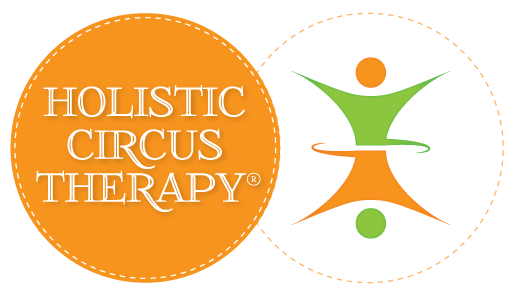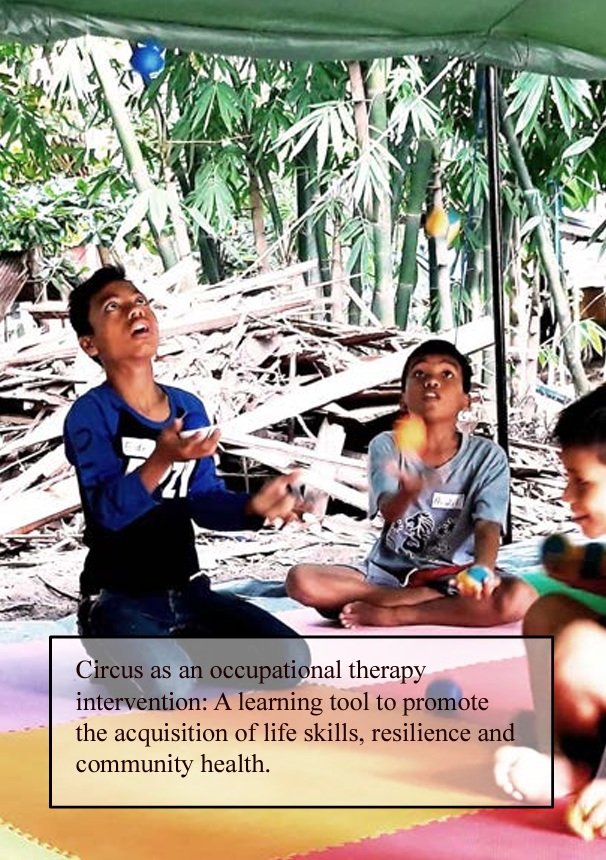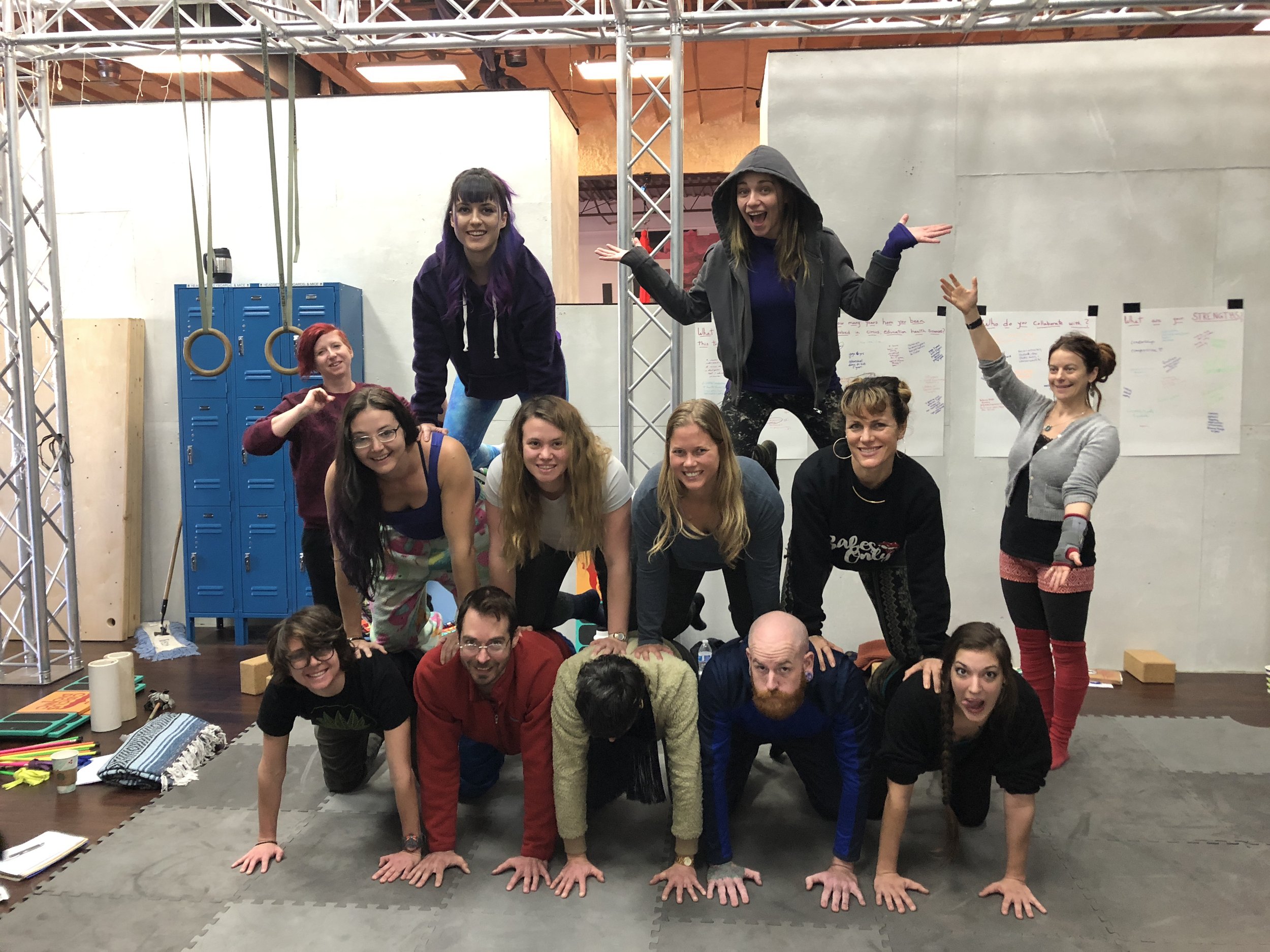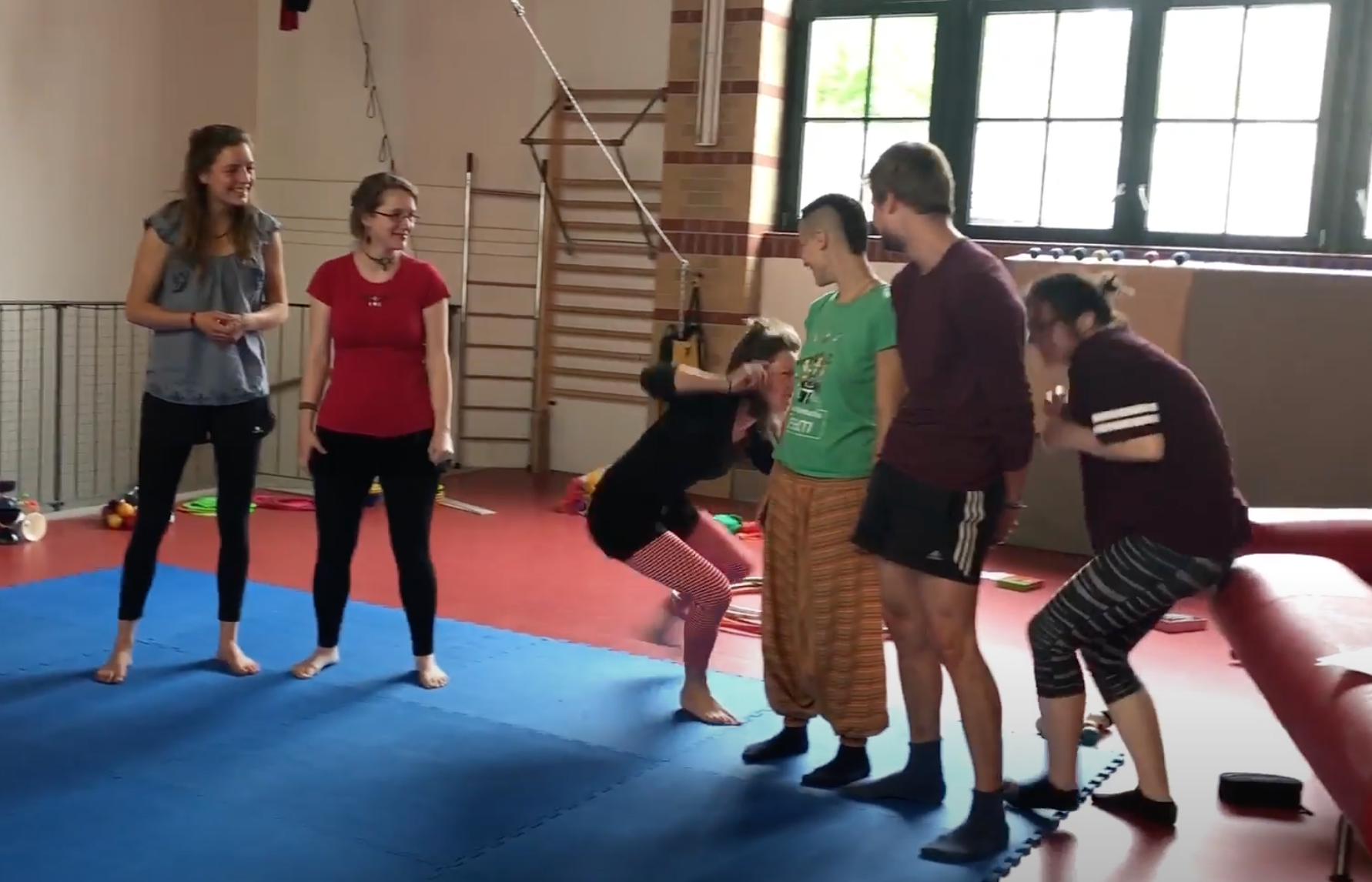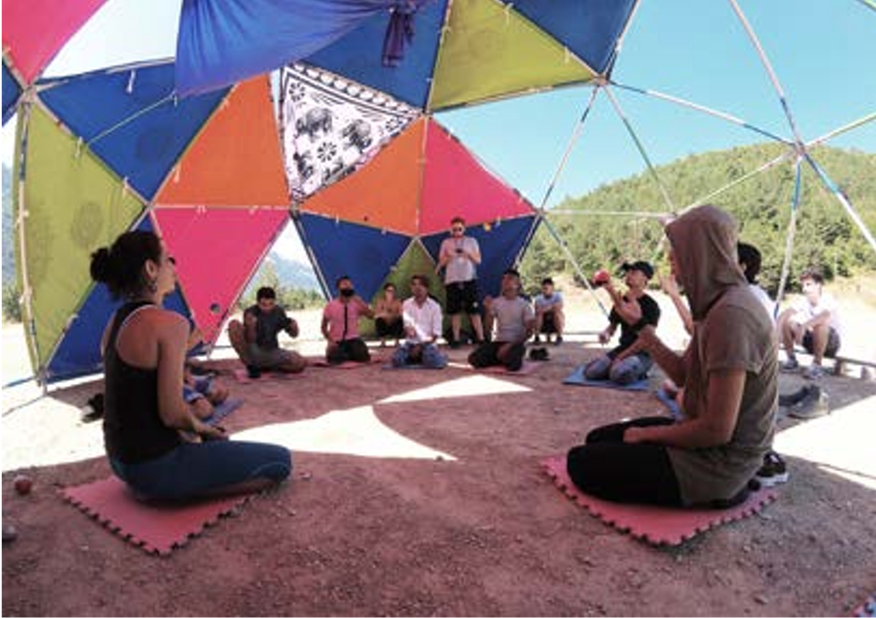Professional Development Training
Live and Online Courses
HCT courses explore how occupational therapy can be combined with social circus philosophy to provide effective services in pediatric, mental health, special needs, aged care, community health, and social-political sectors.
The practice of circus-themed occupational therapy requires task analysis of activities, professional reasoning, evidence-based approaches and evaluation tools to facilitate greater application for diverse service users. Practitioners of circus-based occupational therapy will be able to provide
interventions and demonstrate effective psychosocial change
for individuals and their communities.
Holistic Circus Therapy is an AOTA Approved Provider of professional development. PD activity approval ID# 9347. All courses have been assigned an intermediate level and are predominantly Service delivery-focused (70%), with elements of Professional Issues (15%) and Foundational Knowledge (15%) also included. The assignment of AOTA CEUs does not imply endorsement of specific course content, products, or clinical procedures by AOTA or indicate AOTA approval of a certification or other professional recognition. AOTA Approved Provider # 1294.
Occupational Therapy + Social Circus
Occupational therapy and social circus have complementary purposes of empowering people with adaptable life skills that support health equity. Both disciplines also have a potentially significant role in defending the cultural and human rights of marginalized individuals and communities. Social circus is comprised of process-driven activities delivered with an emphasis on creating change in specific capacities and patterns of behavior that can be transferred to ‘real life’ settings (Arrighi, 2014). Participants will not necessarily become acro-bats, but they will adopt the characteristics of trust, positive risk-taking, empathy, problem-solving, and teamwork that apply to personal and professional contexts (Maglio &McKinstry,2008).
In the HCT Training course, we examine circus-themed occupational therapy practice, theory, and perspective to promote an enhanced understanding of the unique offering of circus that’s built on an occupational therapy foundation. The HCT Training course also aims to increase the understanding and practical skills of occupational therapists in individual, community-centered, and sociopolitical contexts to promote an integrated health care and culturally sensitive approach to improving health and wellbeing. It is accessible to occupational therapists, psychologists, students, global health workers, education professionals, and community development service providers.
As the primary funder of CircusAid, this course has a specific focus on the intersection of circus and occupational therapy for addressing the negative consequences of displacement, especially mental health issues and trauma as they relate to the experience of occupational deprivation. Examples of circus themed occupational therapy practices support the belief that the resettlement journey should uphold people’s right to engage in meaningful occupations (Hammell, 2008). Discussing occupational participation of refugee populations engaging in circus activities contribute to an increase in understanding of the meaningfulness of processoriented occupational engagement.
Past CircusAid Projects
CircusAid programs build resilience, mental health, and community connection through engagement in circus activities delivered to increase social, emotional, physical, and cognitive capacities. The projects are implemented in partnership with local NGOs to help service recipients heal from trauma and gain life skills to enable occupational engagement during the resettlement process. Participants have reported increased levels of happiness, motivation, self-confidence, better sleep, and improved connections to their communities as a result of engagement in CircusAid programs.
HCT Training Profits Directly Benefit CircusAid
100% of profits from HCT's services fund CircusAid projects, which provide free HCT services to help people displaced by war and natural disasters attain transferable life skills to promote greater success in unstable physical and political environments.
As the primary funder of CircusAid, the HCT course has a specific focus on the intersection of circus and occupational therapy to address the negative consequences of displacement, especially mental health issues, and trauma as they relate to the experience of occupational deprivation. Examples of circus-themed occupational therapy practices support the belief that the resettlement journey should uphold people’s right to engage in meaningful occupations (Hammell, 2008). Discussing occupational participation of refugee populations engaging in circus activities contribute to an increase in understanding of the meaningfulness of process-oriented occupational engagement.
“We are learning to engage the children and young adults in specific activities that develop their visual-perceptual/visual motor skills, their gross and fine motor skills, their executive functions including their memory, impulse control, their ability to focus, their adaptability and flexibility, and self-regulation abilities, and of course their social/emotional development. We go in with a plan & specific activities that target these various skills, but we always remain extremely flexible and fluid in the delivery. It all depends on who is present that day in the workshops, what their energy levels are, how they are interacting with one another, if they are listening. We tailor the workshop to each group’s capacity to engage in meaningful play.”
- Leah Barsher, CircusAid Volunteer 2018
“A new and different approach to therapy and a fun way to engage children and adults to a different kind of physical exercise. As a parent, I have seen first hand the improvements in 2 of my children from learning juggling and circus therapy. After attending Jill’s workshop, I instituted a program with children with cerebral palsy, and it was the most popular group event with the highest attendance.”
- Amanda Mac, Allied Health Professional, Melbourne, Australia
